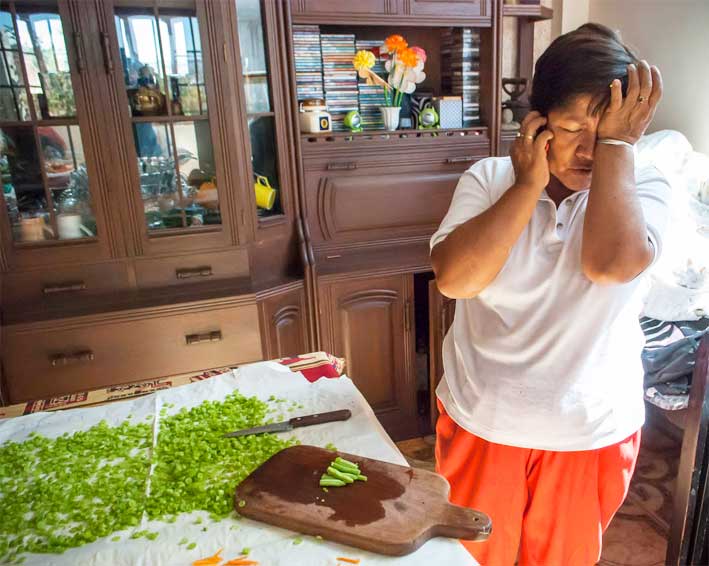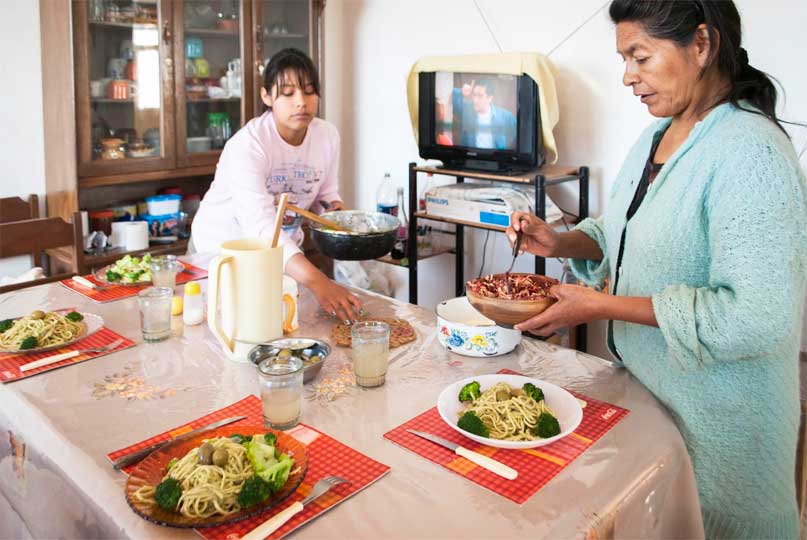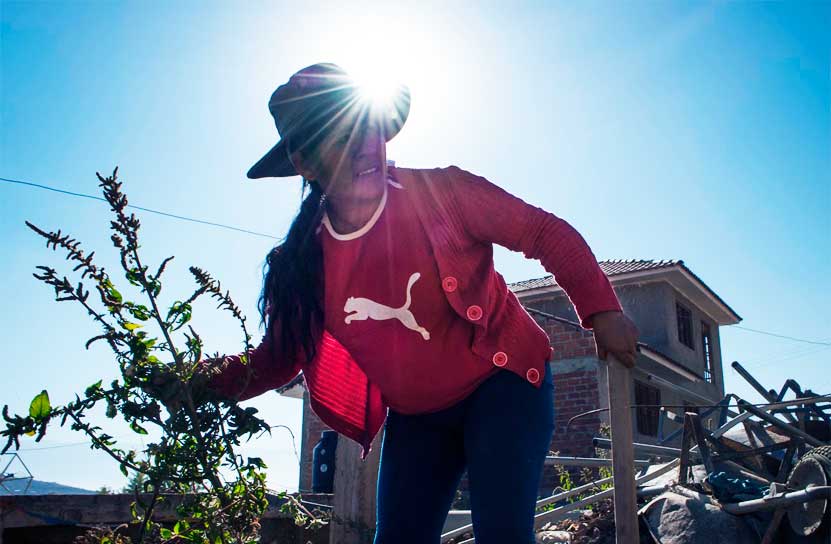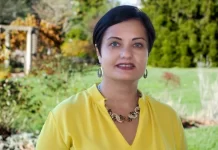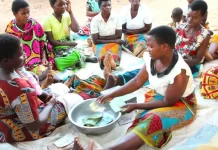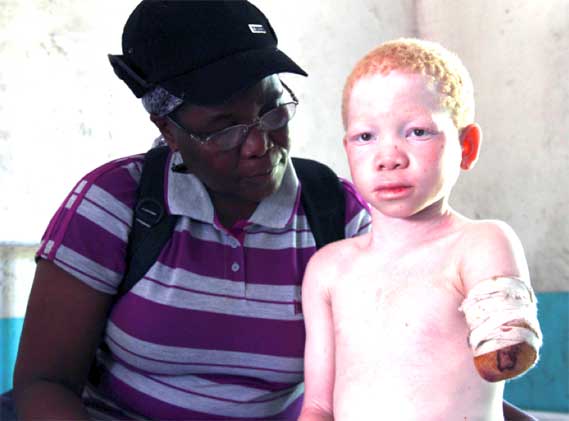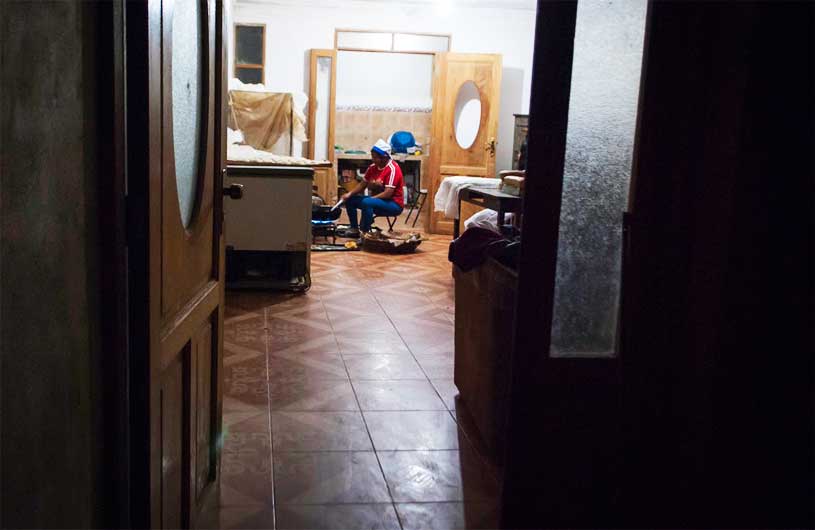
Dignity
Maria Eugenia ran a bakery in the city before moving to María Auxiliadora. After repeated drunkenness and violence, including a beating that gave her facial paralysis, the women of the community grouped together and supported Maria Eugenia to get her husband out of the house. She now works as a baker again – as well as taking on many responsibilties within the community, including that of President.
“Even better than the fact that the neighbors helped me was that they made me respect my rights… It’s now seven years since then and I feel free, happy, and more peaceful.”
Of 442,000 reports of gender-based violence in Bolivia between 2007 and 2011, only 96 have been prosecuted, according to the Centro de Informacion y Desarollo de la Mujer
Leadership
Women often lack access to participation in policy and decision making and have fewer information resources and less decision making authority to cope with climate shocks and stresses.
Doña Rosa takes a call in her kitchen. She serves as treasurer in the community – an often stressful job. She has three children and sells jewellery to supplement her income. “Here in the community I have learned many things – to be a leader, and about solidarity.”
See Also: The Story of a Rural Bolivian University
Wellbeing
Doña Irene serving dinner, with vegetables grown on her plot. She works as a nurse and has two daughters. “The salary I earn isn’t enough for us when the prices of the vegetables go up, especially in the winter when there isn’t water for irrigation… Now that I have my garden the rising price of vegetables doesn’t really affect me.”
Resilience
Maria Eugenia in her garden. Project photographer Carey Averbook: “Women live the impacts of climate change distinctly – as another form of violence in their lives, interwoven with the rest; and they bear a larger burden of the violence than their male counterparts. Most women forge on day after day, thinking of their children: making sure their bellies are full, that they are healthy, that they are going to school. Women around the world are resilient. Some women – those that have the support, resources, strength and opportunity tylehat they need – have more chances to get out of violent situations. It becomes possible for them to take back control of their lives, for themselves and for their children.”
You May Also Like: 10 Powerful Examples of South-South Cooperation in Practice
(Carey Averbook is a photojournalist currently based in Washington, D.C. & Maddy Ryle is the Communications Director for the Democracy Center.)


